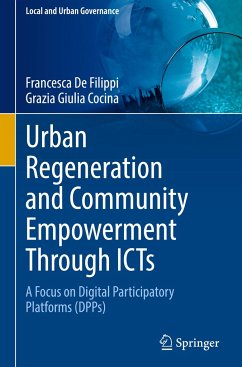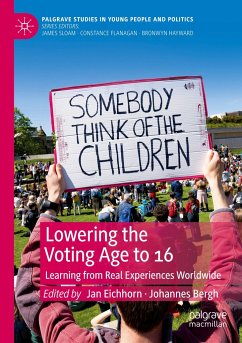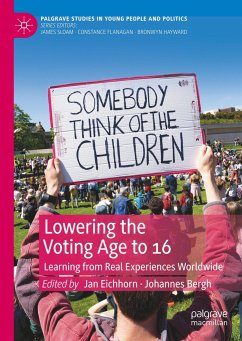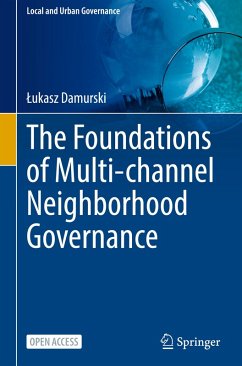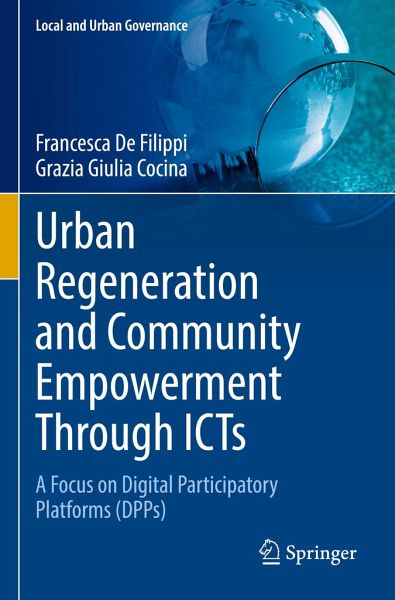
Urban Regeneration and Community Empowerment Through ICTs
A Focus on Digital Participatory Platforms (DPPs)
Versandkostenfrei!
Versandfertig in 1-2 Wochen
39,99 €
inkl. MwSt.
Weitere Ausgaben:

PAYBACK Punkte
20 °P sammeln!
This book deals with the issue of Digital Participatory Platforms (DPPs) for urban governance. It explains the role and potential that ICTs play in the decision-making processes of the Public Administration and citizens' participation. The book also illustrates the main technologies that encourage innovation and social inclusion, with particular focus on use of DPPs in urban regeneration programs and projects. It presents international best practices from local to European level and it describes the process of creation, development and testing of a DPP project with reference to the Italian cas...
This book deals with the issue of Digital Participatory Platforms (DPPs) for urban governance. It explains the role and potential that ICTs play in the decision-making processes of the Public Administration and citizens' participation. The book also illustrates the main technologies that encourage innovation and social inclusion, with particular focus on use of DPPs in urban regeneration programs and projects. It presents international best practices from local to European level and it describes the process of creation, development and testing of a DPP project with reference to the Italian case.
The book is divided into three parts:
the first one gives a framework of neighborhood urban and civic engagement through ICTs, studying in depth the role of ICTs in support of Public Administration's processes and citizens participation;the second part investigates the topic of Digital Participatory Platforms (DPPs) with the description of their potentialities, the presentation of some international best practices and a specific focus on the Italian context;the third part draws the conclusions of this path by asking which are the main challenges in the adoption of Digital Participatory Platforms, in order to increase citizen participation and collaboration via technology.
The book is divided into three parts:
the first one gives a framework of neighborhood urban and civic engagement through ICTs, studying in depth the role of ICTs in support of Public Administration's processes and citizens participation;the second part investigates the topic of Digital Participatory Platforms (DPPs) with the description of their potentialities, the presentation of some international best practices and a specific focus on the Italian context;the third part draws the conclusions of this path by asking which are the main challenges in the adoption of Digital Participatory Platforms, in order to increase citizen participation and collaboration via technology.



